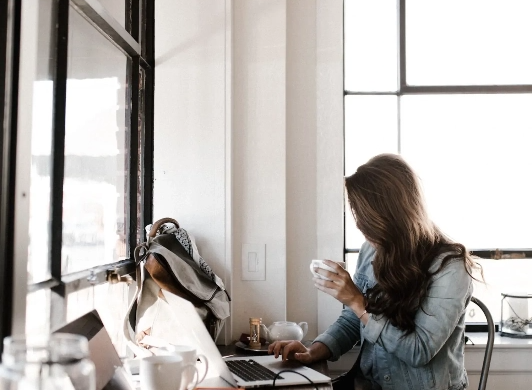The cookie settings on this website are set to ‘allow all cookies’ to give you the very best experience. If you continue without changing these settings, you consent to this – but if you want, you can change your settings at any time at the bottom of this page on our privacy page.
Considerations when choosing a Studio Space to Rent
Studio spaces are quite unlike any other form of commercial premises. The unique combination of a creative and business-like space mean finding the right property is essential. Pall Mall Estates are experts in ensuring our customers find the perfect space in which to manage their growing business.
Our studio spaces offer great locations, many of them central and many of them available on flexible terms that'll allow your business to grow in the right way. Finding the right location is, of course, key to a studio space, as it'll allow your business to excel.
So, how do you go about choosing the right studio space? We'd recommend taking a look at the following factors:
How big a space do you need?
No surprise to see this top of the list. Whatever your form of creative work, it'll become a whole lot more difficult if you don't have the space in which to do it! You'll need to plan out exactly how much room you need, taking into account any storage space as well as room for any current or future employees.
Can you work anywhere?
Many creative artists have the benefit of not needing to work at a particular location: after all, if someone else is handling the marketing and promotion of their work and it's sold throughout the world, there is no reliance on customer footfall. However, it's important to make sure that this is the case for you: will your business suffer without a city centre location? It's worth considering this in terms of networking, too: for the right creative, the ability to collaborate and build relationships with others in the same industry could be invaluable.
Are there any noise restrictions?
It may be that your work requires the use of machinery or other noise-making equipment. If that's the case, you'll need to check and make sure that the local area and the building regulations allow for this and that you're not going to upset any of your neighbours when working.
Does your studio space meet the customer's needs?
If you are looking to use your space to display work or to meet potential customers, then you'll need to make sure that it can work according to what they expect. Is it an enjoyable place in which to spend time? Does it have comfortable seating (or space for it?) Do you have the room in which to set up a separate 'customer' area away from where you actually work?
Ensure you plan for the extra costs
As with all types of business premises, you'll need to carefully plan your finances to ensure that the property is within your budget. In addition to the rent (or mortgage payments) there are a number of other factors you'll need to consider:
- Local authority costs such as business rates or council tax. Usually, business premises will be charged business rates, however as a creative this may change. You should double check which of the two you'll be expected to pay.
- Insurance is another key cost that you'll be expected to meet when renting the property. You'll obviously be responsible for sorting contents insurance, as this will cover your items. However, you may also be responsible for setting up building insurance, depending on the terms of your contract.
- Any repairs or maintenance costs. Depending on your business, it may be that your working space will end up suffering some minor wear and tear. It's also possible that if your landlord is aware of your industry - and typically rents space in it - they'll be aware of this. However, you will usually be expected to meet any damage costs.
What are the lease terms?
Creative industries are among the most unpredictable and it's usually useful to try and obtain the most flexible lease possible. Try to always discuss with landlords when the lease expires and what the terms will be once it's up: will there be a rolling contract with multiple renewals? What sort of break terms will the landlord allow?
Can you sublet the space?
If you're an artist, you may have to allow for the possibility of needing to leave for months at a time to take-up a residency or have work displayed elsewhere. If this occurs, you may then need to sublet the space to someone else: you'll need to ensure you can.
If you would like to know more about how Pall Mall Estates can help with your commercial property needs, call us today on 020 8986 7221 to speak to one of our experts.
Pall Mall Estates - Helping you move with our low cost, high value, business space to let throughout the UK.
Pall Mall Estates have a wide range of low cost commercial properties across the UK.
Take a look at our available spaces here or get in touch with our experienced team here.



